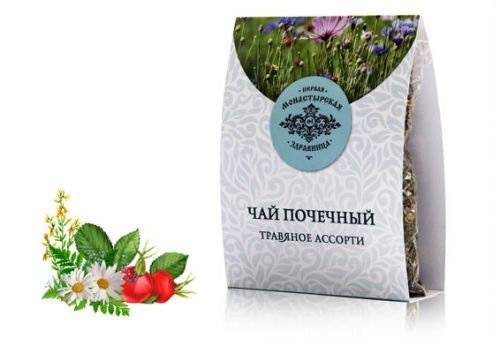Allochol is not suitable for people with urolithiasis. Women who are pregnant and nursing, the drug can be prescribed only by the attending physician, given all the pros / cons.
Festal is not suitable for people with acute pancreatitis or chronic in the acute stage. In case of improvement, and subject to diet, the drug is taken on the recommendation of the attending physician.
Not suitable for people with a history of: fructose intolerance; glucose galactose molabsorption syndrome; insufficiency of sucrose-isomaltase, since the drug contains sucrose and glucose.
Patients with a diagnosis of renal failure; hyperuricemia gout, use Festal very carefully, as it contains purines. It is not suitable for pregnant and lactating women.
As you can see, Festal and Allohol are not interchangeable drugs. Each performs its significant role in improving the condition of patients suffering from gastrointestinal diseases.
The well-functioning work of the digestive tract is disrupted for various reasons: poor or excessive nutrition; harmful environment; chronic diseases. Often, for first aid, they resort to Festal and Allohol. Are they interchangeable? Are there any distinctions in application? This can be found out only after consideration of each separately.
Festal
The drug refers to drugs that improve digestion. Pharmacological properties are due to the complex composition: pancreatin, hemicellulase, bile bile powder.

The drug is provided in the form of an enteric white round dragee, with a subtle smell of vanilla present. They enhance the functional activity of the digestive tract and normalize the digestion process.
Due to the enzymes contained in the composition, the processing and absorption of protein foods, fats, carbohydrates in the small intestine are accelerated. Bile extract promotes the processing of fats, increase lipase activity, increase the absorption of fats, vitamins. Hemicellulase breaks down fiber.
Festal is prescribed in the following situations:
- Violation of the pancreas in chronic pancreatitis.
- Ulcerative colitis.
- Irritable bowel syndrome.
- The postoperative period after resection of the stomach.
- Flatulence.
- Diarrhea of non-infectious etiology.
- Violation of proper nutrition.
- Defects in chewing function in conditions of prolonged immobility.
- Before an x-ray and ultrasound of the abdominal organs.
- For better absorption of certain drugs.
Dragees can not be chewed or crushed, because this will lead to premature release of enzymes and irritation of the oral mucosa. In addition, enzyme activity will decrease. They show the highest activity in the alkaline environment of the small intestine.
The usual dosage for adults is 1-2 dragees during or after the main meal.
Allochol
The drug is used for biliary pathology. Available in the form of tablets under a yellow film coating. In appearance, the tablets are round, biconvex. The main active ingredients of the drug: dry bile, dried garlic (powder), nettle (chopped leaves), activated carbon.

Allochol promotes the secretory function of liver cells, providing a moderate choleretic effect. Under the influence of the drug, the synthesis of bile acids is stimulated, the flow of bile through the ducts is accelerated, the progression of infection is prevented, the inflammatory process is reduced, and the formation of cholesterol stones is prevented.
The drug increases the secretory and motor activity of digestion. Dried garlic reduces the fermentation process, reduces flatulence.
Allochol is prescribed in complex therapy:
- Cholecystitis (chronic form).
- Atonic constipation.
- Gall bladder (uncomplicated cholesterosis, dyskinesia).
- Postcholecystectomy syndrome.
For the adult category of patients, 1-2 tablets are prescribed 3-4 times a day after meals. The course is 3-4 weeks. Further, therapy continues with 1 tablet 2-3 per day for 1-2 months.
General characteristics
Festal and Allochol contribute to the overall improvement of the gastrointestinal tract. Not used in the treatment of children. Have contraindications:
| Festal | Allochol |
| Hypersensitivity to pancreatic enzymes of animal origin and other components of the drug. | Hypersensitivity to substances in the composition of the drug. |
| Hepatitis of the acute stage. | Hepatitis of the acute stage. |
| Bowel obstruction (obstructive). | The presence of stones in the gall bladder. |
| Pancreatitis (acute course). | Jaundice (obstructive). |
| Panreatitis (chronic stage, exacerbation). | Cramped sphincter of Oddi. |
| Mechanical jaundice. | Pancreatitis in the acute stage. |
| Cystic fibrosis (cautiously). | Gastric and duodenal ulcers (acute stage). |
| Pregnant (Caution). | Enterocolitis of acute form. |
Both drugs can cause an overdose.
Distinctive performance
The drugs differ in the form of release, composition, pharmacological group. Although they work to improve digestion, everyone plays a role. Festal is an enzyme, therefore, helps to digest food, removing the load from the pancreas. Allochol also helps to improve digestion, only works in the gallbladder and liver, delivering enough bile to the stomach.
Allochol has fewer side effects than Festal:
| Festal | Allochol |
| Anaphylactic reactions (angioedema, urticaria). | Hypersensitivity to the components of the drug in the form of allergies and diarrhea. |
| Hypersensitivity (skin hyperemia, rash, itching, tearing, sneezing). | |
| Hyperuricosuria. | |
| Irritation of the oral mucosa, vomiting, epigastric pain, diarrhea, constipation, hyperemia of the anus, intestinal stenosis, colonopathy (fibrosing), flatulence, intestinal colic, intestinal obstruction. | |
| An increase in uric acid levels in a blood test. |
Each drug has application features.



